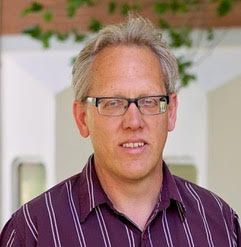Example of a Project to Work the Sustainability Competence in the Subject of Linear Algebra in Engineering Studies.
Article ID: 317
DOI: https://doi.org/10.30564/jiep.v1i1.317
Abstract
Keywords
Full Text:
 PDF
PDF
References
[1] Allen, D., Allenby, B., Bridges, M., Crittenden, J., Davidson, C., Matthews, S., Murphy, C., Pijawka, D. and Nolt-helm, C. (2008). Benchmarking Sustainability Engineering Education: Final Report: EPA Grant X3-83235101-0.
[2] Barth, M., Rieckmann, M. (2012). Academic staff development as a catalyst for curriculum change towards education for sustainable development: an output perspective, Journal of Cleaner Production 26, 28-36.
[3] Bri, D., García, M., Coll, H. LLoret, J. 2009. A Study of Virtual Learning Environments. Wseas Transactions on Advances in Engineering Education, 6 (1), 33-43.
[4] Colombo, C.R., Alves, A.C., van Hattum-Janssen, N., Moreira, F. (2014). Active Learning Based Sustainability Education: a Case Study. Proceedings of the Sixth International Symposium on Project Approaches (PAEE2014) Medellin Colombia.
[5] Colombo, C.R., Moreira, F., Alves, A.C. (2015). Sustainability Education in PBL Education: the case study of IEM-UMINHO. CGIT - Publicaçes em actas de encontros científicos/Papers Conference proceedings 221-228.
[6] Crofton, F.S. (2000). Educating for sustainability: opportunities in undergraduate engineering. Journal of Cleaner Production, 8, 397-405.
[7] Domínguez-García, S., García-Planas, M.I., Taberna, J. (2016). Mathematical modelling in engineering: an alternative way to teach Linear Algebra. International Journal of Mathematical Education in Science and Technology, 47 (7), 1076-1086.
[8] Domínguez, S., Garcia-Planas, M.I., Palau, R., Taberna, J. (2015). Modelling E-portfolio for a Linear Algebra undergraduate course. International journal of education and information technologies, 9, 115-121.
[9] García-Planas, M.I., Taberna, J., Rina, N. (2018). Linear algebra in education for sustainable development [Álgebra lineal en la educación para el desarrollo sostenible]. Barcelona, Spain: Iniciativa Digital Politècnica.
[10] George Lucas Educational Foundation. 2007 Edutopia. How Does Project-Based Learning Work? Tools for understanding the process of planning and building projects. https://www.edutopia.org/project-based-learning-guide-implementation (Retrieved 21/11/2017)
[11] Jones, B.F., Rasmussen, C. M., Moffitt, M. C. (1997). Real-life problem solving.: A collaborative approach to interdisciplinary learning. Washington, DC: American Psychological Association.
[12] Khan, S. (2012). Why Long Lectures Are Ineffective. Time Ideas. Retrieved from http://ideas.time.com/2012/10/02/why-lectures-are-ineffective/
[13] Monereo, C. 2009. Evaluation as a tool for educational change [La evaluación como herramienta de cambio educativo]. In PISA as an excuse. Rethink the evaluation to change the teaching [En PISA como excusa. Repensar la evaluación para cambiar la enseñanza]. Barcelona: Graó, pp. 15--31.
[14] Murphy, C.F., Allen, D., Allenby, B., Crittenden. J., Davidson, C., Hendrickson, C., Matthews, H.S. (2009). Sustainability in Engineering Education and Research at US Universities, Environ. Sci. Technol., 43 (15), 5558--5564.
[15] Taberna, J., Domínguez Garcia, S., García-Planas, M.I. 2016. The use of tic for an evaluation in competences in higher education [El uso del tic para una evaluaci'on en competencias en la educaci'on superior]. XIII Fecies
[16] Taberna, J. Garcia-Planas, M.I. 2016. Project-based teaching: an alternative way to teach Linear Algebra [Enseñanza basada en proyectos: una forma alternativa para enseñar Álgebra Lineal]. Proceedings IN-RED 2016 - II Congreso Nacional de Innovación Educativa y de Docencia en Red INRED UPV, 826-839.
[17] Thomas, J. W., Mergendoller, J. R., Michaelson, A. (1999). Project-based learning: A handbook for middle and high school teachers. Novato, CA: The Buck Institute for Education.
[18] Trimingham, R., Lazzarini, B., Pérez-Foguet, A., Noble, N., Boni, A., Sierra Castañer, M., Mongera, F., Zolezzi, G. (2016). Integrating the Global Dimension in Engineering Education: Experiences from a Collaborative Project. In Teaching Education for Sustainable Development at University Level, Book Chapter, Springer, Switzerland, , pp. 175--190. doi: 10.1007/978-3-319-32928-4_12
[19] Wells, P.J. (2017). UNESCO Higher Education Priorities within the context of the Sustainability Goals. CHEA International Quality Group, Washington D.C. https://www.chea.org/userfiles/Conference%20Presentations/2017-ciqg wells. pdf
[20] Comisión Brundtland (1987) Report of the World Commission on Environment and Development Our Common Future.
[21] Guides to develop generic skills in designing degrees. Retrieved May 22, 2017 from https://www.upc.edu/ice/ca/innovacio-docent/publicacions_ice.
[22] The Manual of Education for Sustainability. United Nations Decade of Education for Sustainable Development (2005-2014). Retrieved january 20, 2017 from http://www.urv.cat/media/upload/arxius/catedradesenvolupament sosteni ble/Informes%20VIP/unescetxea-manual_unesco_cast_education_for_sustaina bility_manual.pdf
[23] Sustainable development goals. 17 goals to transform our world. Retrieved on January 15, 2017 from http://www.un.org/ sustainabledevelopment/es/
Refbacks
- There are currently no refbacks.
 +65 65881289
+65 65881289 contact@bilpublishing.com
contact@bilpublishing.com






